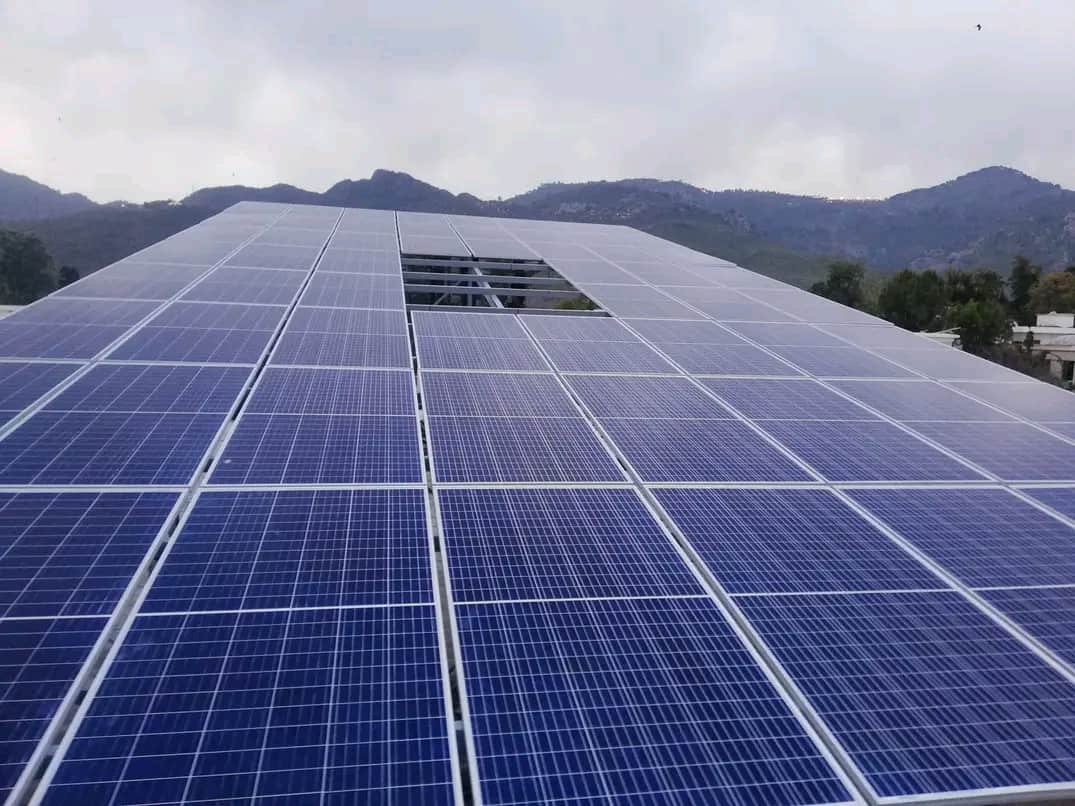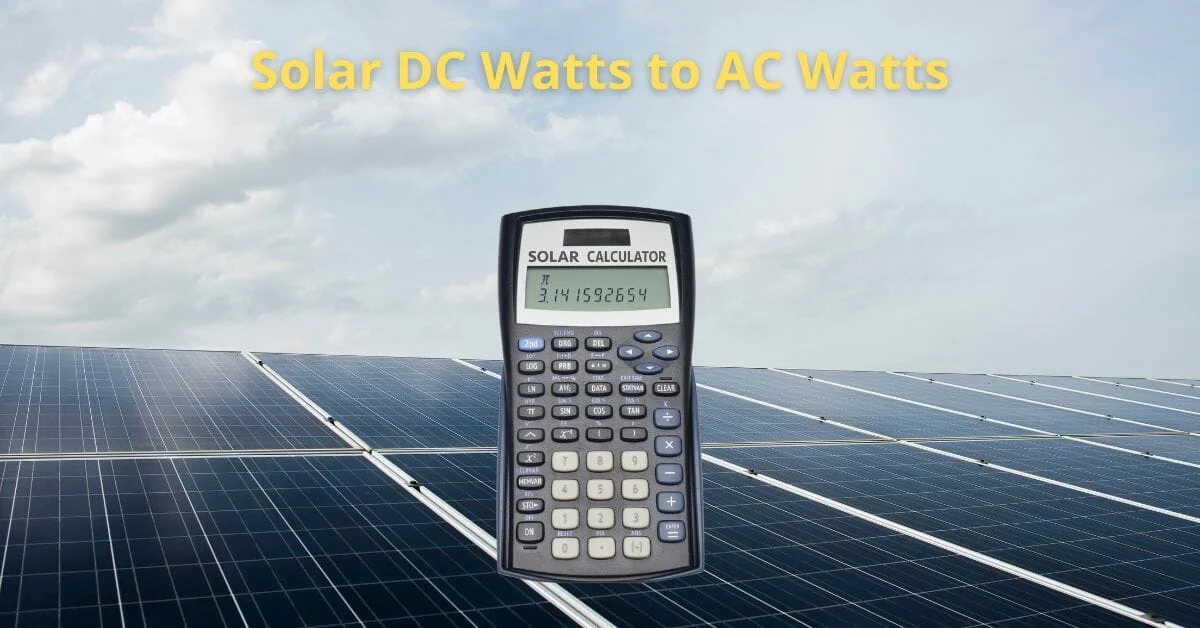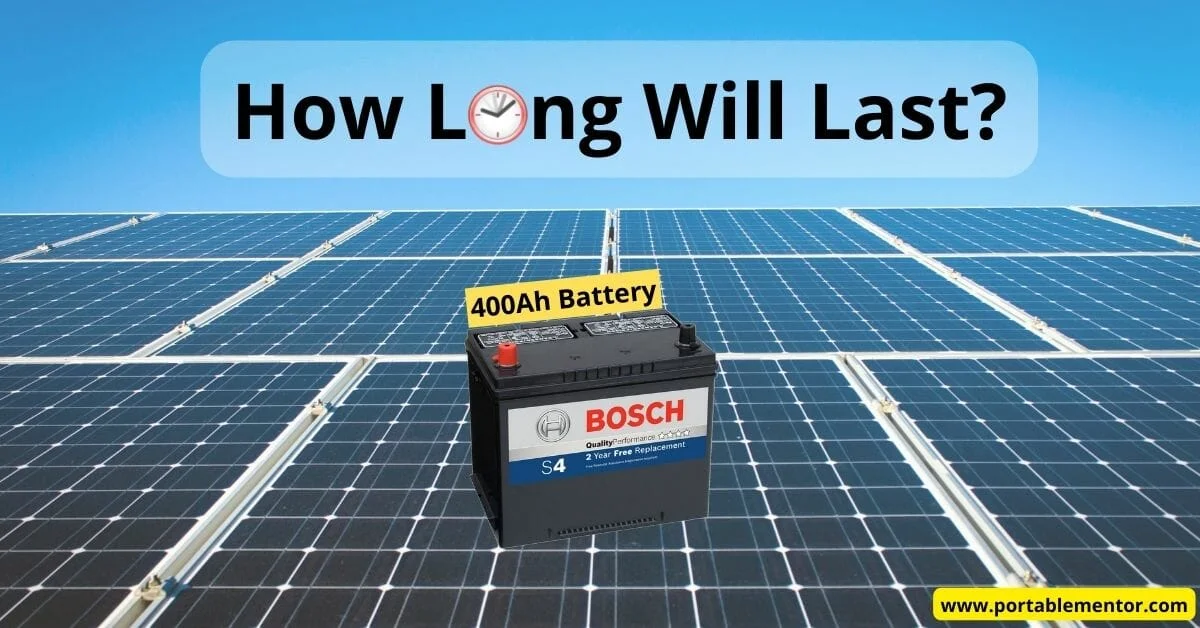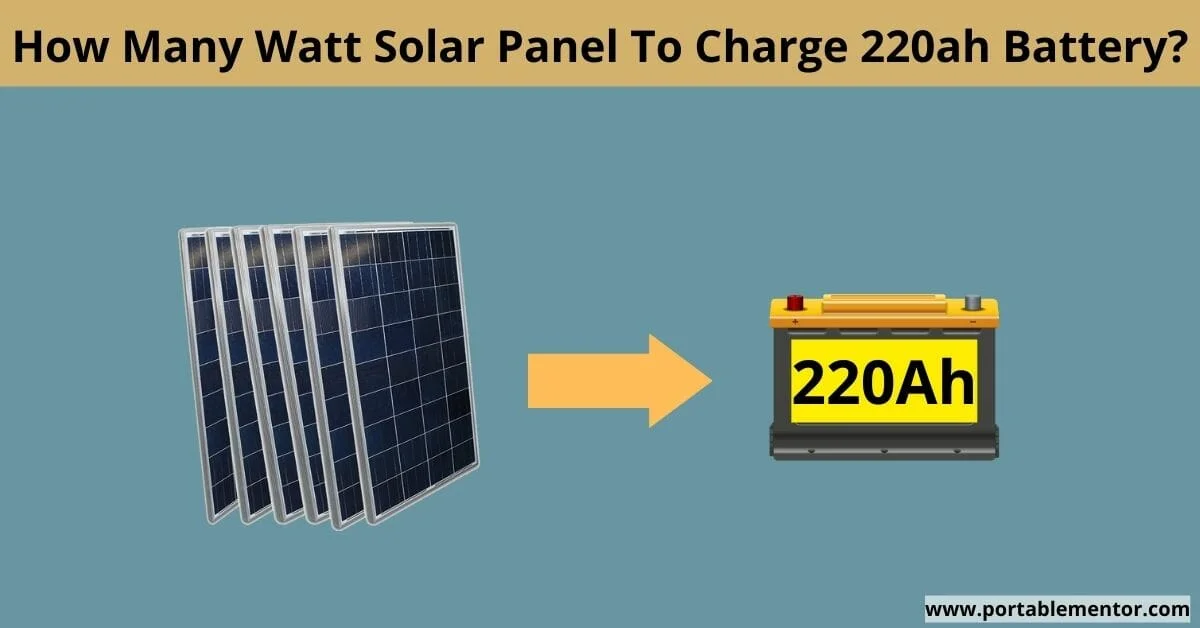Use our solar panel efficiency calculator to quickly calculate the efficiency of a solar panel.
Also, I'll explain: Why you should care about solar panel efficiency — does it really matter? — is it worth paying extra cash for highly efficient solar panels?
Solar panel efficiency calculator
Note: Use our solar panel output calculator to get an estimate of the power production of your solar panel.
how to use solar efficiency calculator?
1 - Enter solar panel maximum power output (Pmax). For example, Enter 100 for a 100 watt solar panel. The value should be entered in watts (watts = kW × 1000).
2 - Enter solar panel dimensions (height and width and select the unit type). The unit types are millimeters (mm), and inches (inch). Usually, you'll find the values on the backside of your solar panels or on the spec data sheet. Unit type for height and width should be the same.
Enter "Calculate" button for the result.
Example

Let's put the values into the calculator.

Renogy 100 watt solar panel is 18.2% efficient.
How to Calculate Solar Panel Efficiency?
Solar panel efficiency formula: Solar panel efficiency = [ solar panel Max. output P(max) ÷ (solar panel area in m2 × 1000) ] × 100
let's take the Renogy 100 watt solar panel as an example.
- P(max) = 100 watt
- Area = 0.54 m2
Solar panel efficiency = [ 100 ÷ (0.54 × 1000) ] × 100
Solar panel efficiency = [ 100 ÷ (540) ] × 100
Solar panel efficiency = [ 0.18 ] × 100
Solar panel efficiency = 18.5
Solar panel efficiency: explanation

Solar panel efficiency is the measurement of a solar panel's ability to convert the sunlight (irradiance) that falls on its surface area into electricity.
For example, a 20% efficient solar panel with an area of 1 m2 (10.7 square feet) will produce about 200 watts and a 15% efficient solar panel with the same room will produce about 150 watts under standard test conditions — STC.
Due to the advancement in photovoltaic technology in recent years, now most solar panels are about 20 — 22% efficient. As the efficiency of a solar panel increases, so will its cost. You may ask now, is it worth paying extra bucks for a highly efficient solar panel system? let's find out.
Solar panel efficiency — Does it really matter?
You might think, highly efficient solar panel will produce more power than a low-efficient solar panel. Well, that's not exactly the case.
The wattage rating of a solar panel is the single big factor that will determine the solar system's power production, not efficiency.
solar panel efficiency vs rated wattage
The only difference between a solar panel's efficiency and its rated wattage is that a high efficient solar panel will take less space to produce the same amount of power than a low efficient solar panel.
For example, a 300 watt solar panel with 15% efficiency will produce the same amount of power that a 20% efficient 300 watt solar panel will produce. But, lowe efficient solar panels will take up a bit more space.
who should get high efficient solar panels?
The only logical explanation I can think of is — if you have limited rooftop space.
Otherwise installing high efficient solar panels will only increase the investment.
other solar calculators
- Battery Charge And Discharge Rate Calculator
- Lead Acid Battery Life Calculator
- Solar Panel Output Calculator
- Solar DC Watts To AC Watts Calculator
- Solar Panel Amps Calculator (Watts To Amps)
- Solar Panel Size Calculator For Battery
Resources
- Most Efficient Solar Panels 2022 [1]
- IS SOLAR POWER WORTH THE INVESTMENT? [2]
- Does Solar Panel Efficiency Really Matter? [3]
I hope this guide was helpful to you. Feel free to contact us if you have any suggestions or queries



